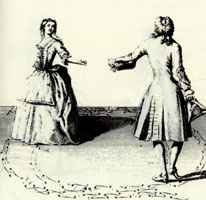 MOSUL, Iraq The killing of an al-Qaida leader in Mosul recently will force the extremist Islamist group to reorganize within its last urban stronghold. This comes at a time when al-Qaida in Iraq finds itself under increasing U.S. military pressure and at a time when the organization is apparently trying to establish a common cause operational relationship with nationalist insurgents.
MOSUL, Iraq The killing of an al-Qaida leader in Mosul recently will force the extremist Islamist group to reorganize within its last urban stronghold. This comes at a time when al-Qaida in Iraq finds itself under increasing U.S. military pressure and at a time when the organization is apparently trying to establish a common cause operational relationship with nationalist insurgents.Maj. Adam Boyd, an intelligence officer with the 3rd Cavalry Regiment, said Jar Allah "was a senior military leader, planner and facilitator in Mosul for all al-Qaida in Iraq [AQI] operations."
His death "forces now the enemy to reconsolidate and reorganize. It forces them to re-think how they are going to conduct operations," he said.
Jar Allah, a Saudi Arabian with the alias of Abu Yasir al-Saudi, died in Mosul last Wednesday, but word of his demise only came Sunday in a news conference in Baghdad. Boyd said the attack was a result of multi-sourced intelligence gathering. He gave no other details, but it was clear much came from Iraqi security forces, who "in Mosul are very good at intelligence." At the U.S. military news briefing in Baghdad, Jar Allah was said to have been an associate of AQI leader Abu Ayyub al-Masri and came to Iraq from Afghanistan in November with a group of foreign fighters.
Among major attacks in and around Mosul for which he was responsible was a Jan. 28 improvised explosive device (IED) and sniper attack that left five U.S. soldiers dead. He was also believed to be behind a coordinated vehicle-bomb and foot-soldier assault by gunmen on an Iraqi-U.S. outpost that went awry with the appearance of Bradley Fighting Vehicles at a checkpoint.
Mosul about 255 miles north of Baghdad is important to al-Qaida. It is Iraq's second-largest city (population about 1.8 million) and close to Syria, from where foreign fighters and insurgent supplies are believed to enter Iraq. And it is a gathering point for operatives pushed out from Baghdad and points in between by U.S. and Iraqi military operations. Boyd said it is believed there are 400-600 hardcore AQI operatives in Mosul and Nineveh province. Included in the hardcore number are those who belong to the Islamic State of Iraq (ISI) group, which is believed a creation of al-Qaida but with an Iraqi nationalist face.
Since December 150 AQI/ISI facilitators, planners and cell leaders have been killed or detained, but "it is like having a bucket of sand and taking a Dixie cup of sand out: the sand will fill back in. But there is a little less sand in the bucket," Boyd said. Retaliatory attacks result from the affected terror cells, but they are "not as coordinated" and "less and less capable" as experienced leadership is removed. And "it is important to understand that having more and more success with the senior leaders [doesn't] remove the threat of the insurgent cells."
In addition to hardcore AQI and ISI operatives, there are about 1,200-1,600 other various insurgents or insurgent supporters in the area, he said. "Not all are fighters. Some of these are simply supporters that are providing bedding-down locations, or facilitate travel, or smugglers of arms and ammunition, but ultimately they are part of the problem," Boyd said.
Among other groups operating in the Mosul area are Jaish Islamiya and Ansar al-Sunna, and the Revolution 1920 Brigades, composed mainly of former Baathist officials, former military personnel and opposed to coalition presence. U.S. officials say it is these groups that AQI and ISI are attempting to form a working, operational relationship with. "What they are trying to do is take a fractured insurgency and bring the groups together into a less fractured one," a senior officer with the 3rd Cavalry Regiment said of the effort.
Boyd said, "We've heard varied reportings of attempts at recruitment, we've had varied reports of these mid- to senior-AQI types and leaders of other cells" holding talks. Recruitment, he said, means trying to get members of other groups to surreptitiously join AQI or ISI and advance their interests in their home organizations, most of which are opposed to AQI's practice of spectacular attacks car bombings and suicide vests, for example that often result in the death of ordinary Iraqi civilians not involved with coalition forces. Jar Allah was heavily involved in the effort, Boyd said. "He was a senior facilitator and definitely had his finger in many pots. He was very into recruitment and very much in the process of bringing cells together under a common-cause banner. He was very much so part of the integration of multiple cells, trying to put them under an umbrella, if you will, of [AQI or AQI-influenced] leadership."
Meanwhile, al-Qaida tries to maintain its presence in Mosul amid a steady push by U.S. forces to dislodge, capture, or kill them. More joint U.S.-Iraqi combat operations posts (COPs) are being built in the city's districts and neighborhood, facilitating 24/7 security presence in the zones. It is from these COPs that troops respond to attacks in their areas, patrol on foot and in vehicles, and conduct outreach efforts with the populace to gain their trust and their information.
Troops from two U.S. battalions rotate in and out of the COPs from anchor bases on the outskirts of the city. In addition to the U.S. troops, there are about 18,500 soldiers from Iraq's 2nd Division and about 1,800 police. Mosul, however, still remains a dangerous place with up to two dozen significant incidents, mainly involving IEDs, occurring daily.
Iraqi Prime Minister Nouri al-Maliki said in January the "decisive" battle to take Mosul from insurgents was about to begin. The battle is occurring, but not in a Stalingrad sense of heavy street fighting for now. Instead it is a steady campaign of spreading security cordons, targeted raids on suspect locations and joint efforts to rebuild infrastructure.

 Seven of the most important Sunni-led insurgent organisations fighting the US occupation in Iraq have agreed to form a public political alliance with the aim of preparing for negotiations in advance of an American withdrawal, their leaders have told the Guardian.
Seven of the most important Sunni-led insurgent organisations fighting the US occupation in Iraq have agreed to form a public political alliance with the aim of preparing for negotiations in advance of an American withdrawal, their leaders have told the Guardian. A military leader of the
A military leader of the  The group, in a statement posted on the Internet said: "The
The group, in a statement posted on the Internet said: "The  Regarded as untouchable by the Sunni populace,
Regarded as untouchable by the Sunni populace,  BAGHDAD (Reuters) - Iraqi nationalist rebels in the Sunni Arab city of Ramadi have turned against their former al Qaeda allies after a bomb attack this month killed 80 people, sparking tit-for-tat assassinations. Residents told Reuters on Monday at least three prominent figures on both sides were among those killed after local insurgent groups formed an alliance against al Qaeda, blaming it for massacring police recruits in Ramadi on January 5.
BAGHDAD (Reuters) - Iraqi nationalist rebels in the Sunni Arab city of Ramadi have turned against their former al Qaeda allies after a bomb attack this month killed 80 people, sparking tit-for-tat assassinations. Residents told Reuters on Monday at least three prominent figures on both sides were among those killed after local insurgent groups formed an alliance against al Qaeda, blaming it for massacring police recruits in Ramadi on January 5.